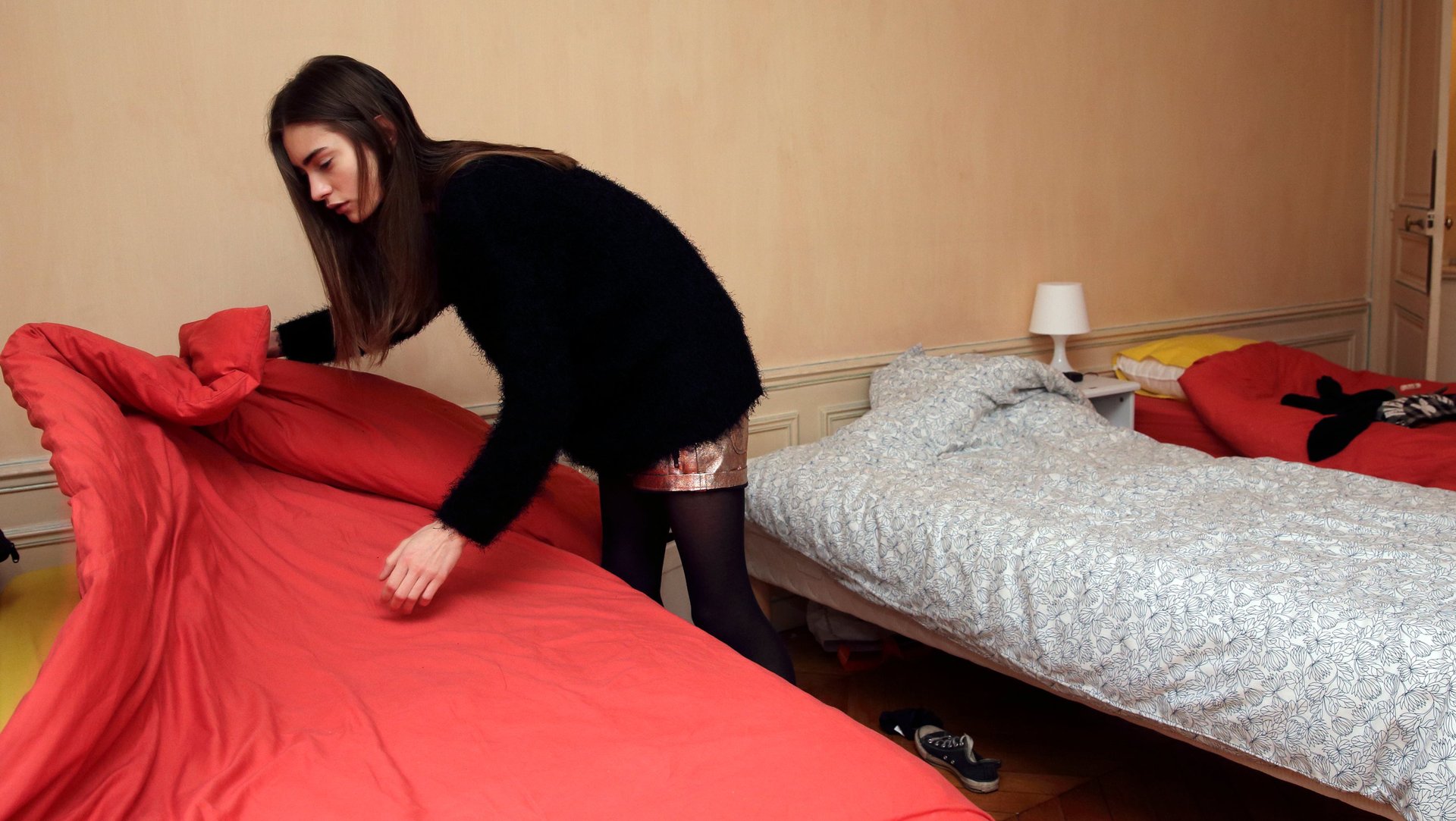Do successful people make their beds? What I learned after a year investigating this trendy life hack
I’ve always harbored a hatred for bed making. My mother swears she never made me make my bed, but I remember otherwise. Fortunately, when I became an adult, I became free to choose how and when to order the various accoutrement of my bedroom.


I’ve always harbored a hatred for bed making. My mother swears she never made me make my bed, but I remember otherwise. Fortunately, when I became an adult, I became free to choose how and when to order the various accoutrement of my bedroom.
It was freeing to be able to leave the covers crumpled in a heap when I left in the morning. Who cares? But that freedom turned out to be somewhat short-lived. Little did I know that bed-making was about to become one of America’s favorite productivity memes.
I think the bed-making movement really hit its stride when Admiral William McRaven, ninth commander of US Special Operations Command, spoke to the University of Texas at Austin’s Class of 2014. A distinguished and highly decorated officer, McRaven told the college students that changing the world started with one simple action: making your bed:
If you make your bed every morning you will have accomplished the first task of the day. It will give you a small sense of pride and it will encourage you to do another task and another and another.
The admiral’s speech has since been viewed more than five million times on YouTube, and his bed-making wisdom has been touted consistently by self-help gurus and life-hack websites as a magic bullet for success. (Sample Buzzfeed headline: ”Here’s Why You Should Make Your Bed Every Single Day.”)
But no disrespect to the admiral—he did, after all, lead the SEAL team that killed Osama bin Laden—I was not convinced that all of life’s problems could be fixed by a quick straightening of sheets. Where was the proof?
I decided it was time to do a little investigating of my own. I have a podcast called Love Your Work, in which I dissect the success of entrepreneurs and creators who have broken away from the pack. The podcast seemed the perfect way to conduct some (admittedly unscientific) research that might help get to the bottom of this bed-making nonsense.
As a result, I have spent the past year asking my podcast guests whether or not they make their beds. If making your bed was some kind of magical productivity hack that would lead to success, it would follow that the majority of the successful people I interviewed would be making their beds, too.
The first guest, Basecamp founder and CEO Jason Fried, got right to the heart of what I hated so much about bed-making. “I don’t like things tucked in and tight that way,” he noted. As a free-footed sleeper, I personally never saw the point of tucking in the sheets of my bed, only to struggle to kick them out from under the mattress later that night. Strike on.
Laura Roeder, an entrepreneur who has built two multi-million dollar businesses and has spoken at the White House, was probably the guest most adamantly against making her bed. “Don’t be ridiculous!” she said. “I inherently do not understand the making of beds… It’s weird.”
Infamous best-selling author Tucker Max actually believes making one’s bed is inefficient. Speaking on behalf of entrepreneurs and creators, Max seemed a bit outraged that this was even a debate worth having. “We have shit to do!” he exclaimed.
So far, it seemed like the investigation was progressing in my favor. But some of my guests did turn out to be enthusiastic bed-makers. And as hard as this is for me to admit, they made some good points.
Jodi Ettenberg, a former lawyer turned food and travel writer at Legal Nomads, pointed to the “value proposition” of making her bed: “Making your bed takes two seconds and it makes you feel so much more tidy, so why not make your bed?” Noah Kagan, employee #30 at Facebook and the founder of AppSumo, was the most disciplined bed-maker of the group. He even makes his bed in hotel rooms. Kagan said he picked up the habit from a friend who was in the Israeli military, noting that when you make your bed, you “start the day off with a win.”
Meanwhile, some successful people were indifferent to the whole thing. You might think a billionaire like former AOL CEO Steve Case would have rock-solid discipline, but when it comes to making his bed, he could hardly care less.
Ultimately, of the 20 guests I interviewed, only seven of them were bed-makers. Even if you count the three guests who have a spouse or partner who makes the bed for them, that leaves us with only 10 out of 20 who are in “bed-making households.”
It’s not exactly a definitive answer, but I feel like my bed-making quest was worth the journey. If bed-making makes you feel happier and more productive, I’m certainly not going to stop you. But it’s important to remember that sometimes productivity trends are more about being trendy than being productive.
It’s completely possible to build companies, write books, and generally be successful without caring one bit about the positioning of your pillows. A successful life is one that is built gradually and purposefully; there is no magic bullet, and there are no shortcuts. And after a year spent searching for the secrets of success, I think that’s probably the biggest life hack of them all.
For a full breakdown of who does and doesn’t make their beds, as well as more information about how my investigation has affected my personal habits, check out David’s special episode of Love Your Work.